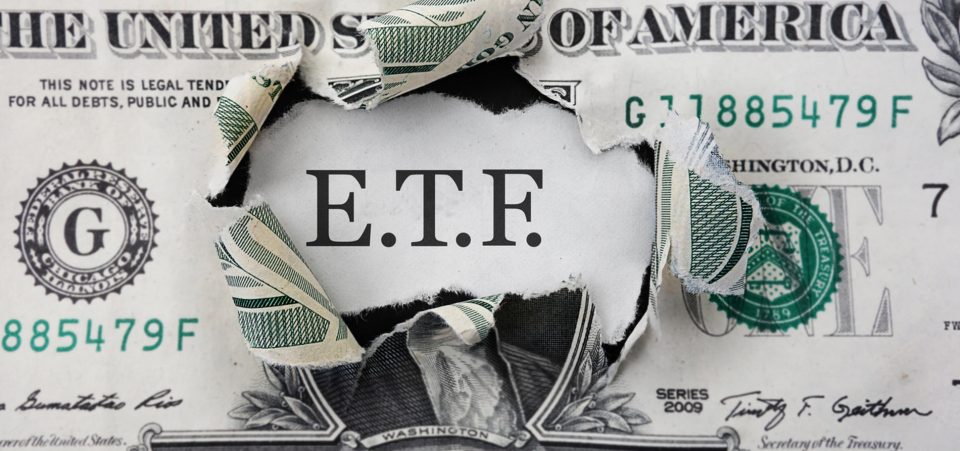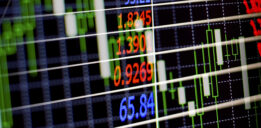Investing Has Crossed the Political Realm with Soon-to-Be MAGA ETF
Stock market investing has officially gone political. Point Bridge Capital LLC has introduced a new ETF that promises to “Make Investing…” I mean, “Make America Great Again” with a new MAGA ETF to launch on September 7. Another sign of a market bubble, or an innovative new product? Arguments can be made both ways.
Perhaps it’s both. At a minimum, it does politicize investment derivatives to a certain extent. The new MAGA ETF will hold the Top 150 Republican stocks based on political contribution data. This is a break from most ETFs, which invest based on sector, industry, value, or event. (Source: ““MAGA”: There Is Now An ETF Investing In Companies That Support The GOP,” Zero Hedge, September 1, 2017.)
Based on the top five Republican contributors from the past two election cycles, the biggest weighting could be AT&T Inc. (NYSE:T), Marathon Petroleum Corp (NYSE:MPC), Home Depot Inc (NYSE:HD), Exxon Mobil Corporation (NYSE:XOM), and Altria Group Inc (NYSE:MO). Basically, a Who’s Who of large American industrial powerhouses.
Likely Top 5 Stocks in the MAGA ETF
| GOP Donor Stock | Return Since Election |
| AT&T | 4% |
| Marathon Petroleum | 24% |
| Home Depot | 21% |
| Exxon Mobil | -8% |
| Altria Group | -2% |
This comes at a time when corporations are increasingly entering the political sphere to exert their influence.
For instance, Facebook Inc (NYSE:FB) has long been accused of censoring political views on the “right,” while openly campaigning for universal basic incomes and an expanded H1-B visa program. A vocal critic of Donald Trump, rumors are circulating CEO Mark Zuckerberg that he might entertain a 2020 presidential run. Those close to him believe he wants to lead.
Another example: Kellogg Company (NYSE:K) announced in November 2016 that it was pulling all of its advertising off of America’s preeminent conservative news platform—Breitbart.com. Kellogg’s reasoned that Breitbart didn’t represent the company’s “values,” despite a reach that crested at over 250 million page views during the U.S. presidential election. Brietbart responded with a counter boycott, which generated at least 408,000 followers. (Source: “#DumpKelloggs Boycott Joined by Over 408K People After Cereal Company Blacklists Breitbart,” The Christian Post, December 9, 2016.)
There are many other such examples. Just Google it if you have any further doubts. One can’t help but wonder if all this activism is good for business. When “progressive” ideology meets “conservative” ideology, one side is guaranteed to get alienated. It’s not generally a good business strategy to pander to one side. But it’s the sign of the times.
Either way, we doubt many liberals will make the new MAGA ETF a top choice.
There Are More Indexes Than Actual Stocks
The rise of passive investing has seen an explosion of new indexes and ETFs that track underlying equities. So much so that indexes actually outnumber actual stocks. Yes, really!
Driven by pressure to reduce costs, many active strategies have been repackaged into ETFs that tracks sub groups of stocks. This new MAGA ETF is no different. But with fewer stocks than actual indexes, the risk to market structure is increasing. It definitely screams potential “market top,” which will only be appreciated in hindsight.
Why? Because stocks by definition must be held in multiple indexes, which leads to “over correlation.” For example, XYZ Corp. may be a slow-growing industrial company, so it’s included in an industrial index. But it also pays a dividend, so it’s included in several dividend-paying indexes. XYZ Corp. also donated to the Trump campaign in the last election cycle, so it’s included in the new MAGA ETF.
See what I’m getting at here? With more indexes than stocks, one company can be held in several different indexes, magnifying correlation beyond natural extents. In a debt-fueled and centrally planned market, it works well. When the market heads in reverse, not so much. Over correlation has the potential to cause worsening crashes across all sectors, rather than limiting it to a specific sector.
Over-indexing also makes the market more top-heavy, as ETFs tend to be market cap-weighted. This means the sector leaders become bigger, at the expense of smaller firms. Not only does this stretch valuations of large companies beyond reason, it’s anti-capitalistic.
As large companies become worth more than justified, they can more easily buy out competitors. We’re seeing a trend where a handful of companies are dominating the economy. Especially in technology, where calls to rein in Amazon.com, Inc. (NASDAQ:AMZN) and Alphabet Inc (NASDAQ:GOOG) continue to grow on Capitol Hill.
That’s a topic for another day. But from an investment point of view, any hiccup in earnings can have an outsized effect on price. Over concentration of capital rarely produces good ending.
We’re not sure how well MAGA ETF will do in the coming months. But from our vantage point, MAGA ETF is another sign of both the politicization of American business and the over-commercialization of the U.S. stock market.
Both are troubling signs that the stock market is reaching the later innings, even if investors don’t realize it yet.







